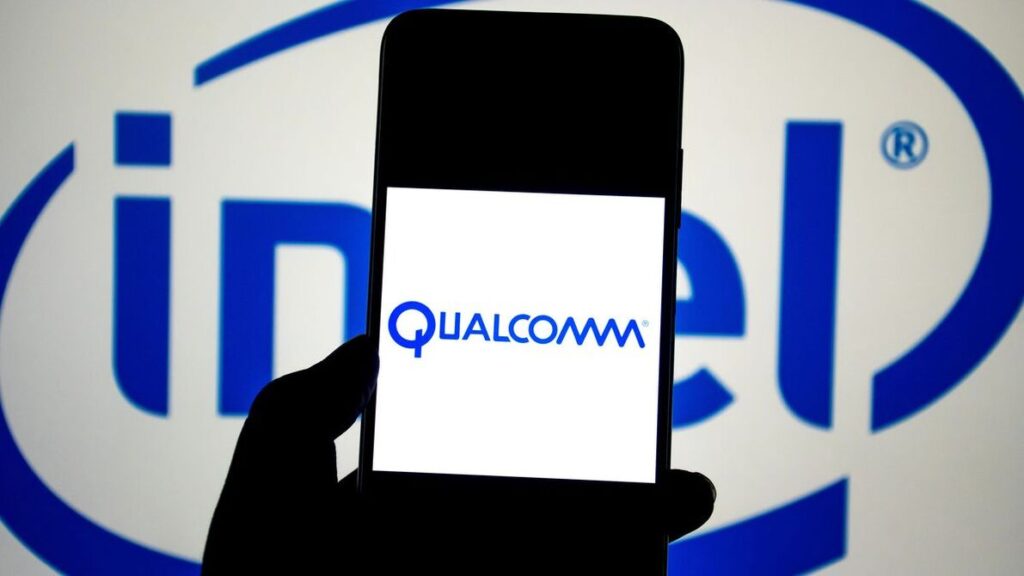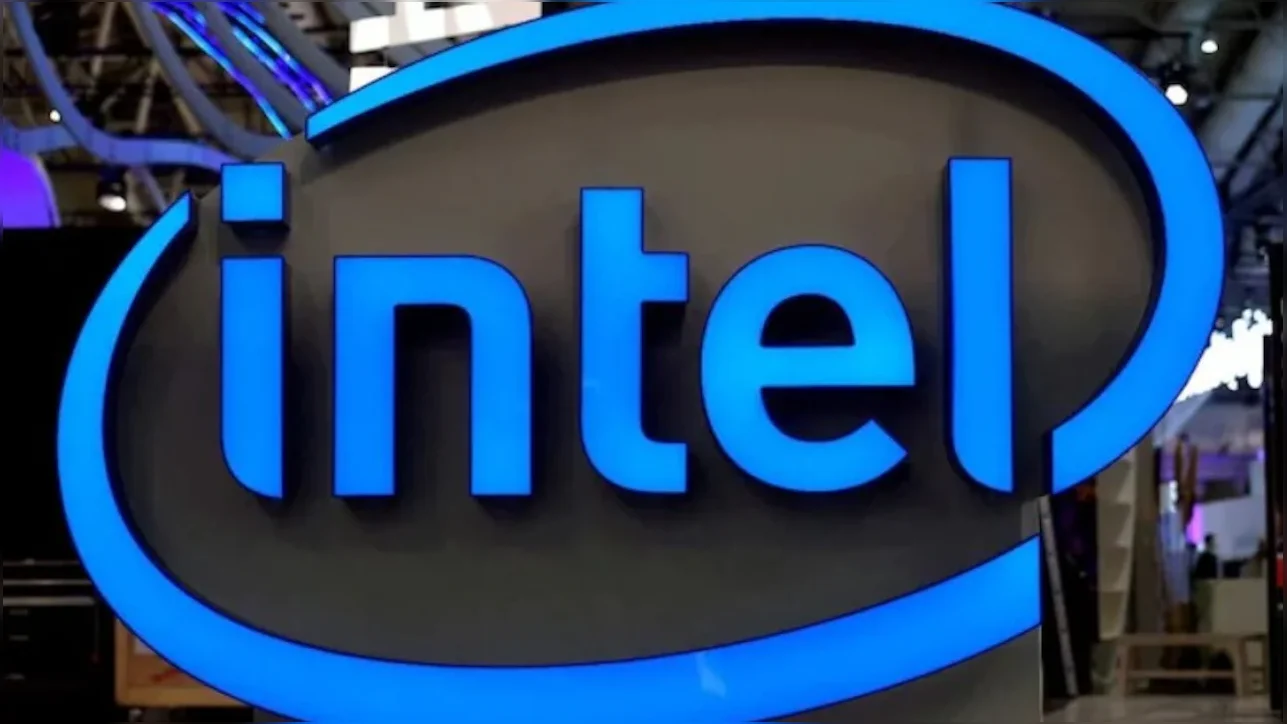The tech world is buzzing with reports suggesting that Qualcomm, a leader in mobile chipsets, may be considering a game-changing move – taking over Intel, one of the largest semiconductor companies globally. If true, this potential deal could have a significant impact on the tech industry, redefining the competitive landscape and sparking discussions on what this merger would mean for the future of chips, processors, and technological advancements.
The Background: Qualcomm and Intel’s Dominance in Tech
To understand the magnitude of this potential acquisition, it’s essential to know the roles Qualcomm and Intel play in the tech world.
- Qualcomm: Known for its Snapdragon processors, Qualcomm dominates the mobile chipset market, supplying chips for smartphones, tablets, and other mobile devices. The company has also been pushing into 5G technology, playing a crucial role in the global rollout of 5G networks. In recent years, Qualcomm has diversified its portfolio by expanding into areas like automotive technology, artificial intelligence (AI), and the Internet of Things (IoT).
- Intel: Intel has been a dominant force in the tech industry for decades, particularly in the desktop and laptop processor market. Its x86 processors power a significant portion of the world’s computers. However, Intel has faced increasing competition from companies like AMD and ARM in recent years. Despite these challenges, Intel remains a major player in the semiconductor industry, especially in cloud computing, data centers, and server technologies.
Both Qualcomm and Intel have substantial influence in the tech world, but their areas of expertise have traditionally been distinct. Qualcomm has been more mobile-focused, while Intel has concentrated on computing and server hardware. A merger between these two giants could change that dynamic entirely.

Why Would Qualcomm Want to Acquire Intel?
There are several reasons Qualcomm might be interested in acquiring Intel:
- Expanding Market Reach: Qualcomm primarily excels in the mobile sector, but an acquisition of Intel would give the company a much broader presence in the desktop, laptop, and server markets. This would allow Qualcomm to compete more directly with companies like AMD, Nvidia, and ARM, all of which are expanding rapidly in various tech sectors.
- Strengthening 5G and AI Capabilities: Both Qualcomm and Intel are heavily invested in 5G technology, but combining their expertise could accelerate developments in this space. Intel’s data center and cloud computing technologies, combined with Qualcomm’s mobile 5G leadership, could create synergies in the growing 5G and AI-powered industries.
- Diversification of Revenue Streams: Qualcomm is highly dependent on the smartphone market for its revenues. Acquiring Intel would provide the company with diversified revenue streams, reducing its reliance on a single industry. Intel’s dominance in server processors, data centers, and cloud computing would help Qualcomm tap into new growth opportunities.
- Challenging Competitors: Intel has faced increasing pressure from competitors like AMD and Nvidia, particularly in the gaming and high-performance computing sectors. By acquiring Intel, Qualcomm could leverage Intel’s existing infrastructure, patents, and market share to challenge these competitors more effectively.
How Would the Deal Affect the Semiconductor Industry?
A Qualcomm-Intel merger would send shockwaves through the semiconductor industry. Here’s what could happen:
- Increased Competition: A combined Qualcomm and Intel could pose a serious challenge to other semiconductor companies like AMD, Nvidia, and ARM. The sheer size and scale of this new entity would make it a dominant player in both mobile and computing technologies. This increased competition could drive innovation but also lead to potential monopolistic concerns.
- Consolidation of Power: The tech industry is already dominated by a few key players, and a Qualcomm-Intel merger would further consolidate power within the semiconductor space. While this could lead to more integrated and efficient solutions, it could also stifle competition, leading to fewer choices for consumers and businesses.
- Impact on Innovation: With Qualcomm and Intel combining their research and development efforts, there could be significant advancements in chip technology, 5G, AI, and cloud computing. The potential for faster, more efficient, and more powerful processors could benefit industries ranging from smartphones to supercomputers. However, some experts worry that such a massive consolidation could reduce the incentive to innovate, as fewer companies compete at the top level.
- Effect on Pricing: One potential downside of this merger is its impact on pricing. With fewer competitors in the market, there’s a risk that prices for chips, processors, and other semiconductor products could rise. This could impact everything from smartphones to laptops to servers, leading to higher costs for consumers and businesses alike.
Challenges and Regulatory Hurdles
While the idea of Qualcomm acquiring Intel is exciting, it would likely face significant regulatory scrutiny. Given the size and influence of both companies, antitrust regulators in various countries would carefully examine the deal to ensure it doesn’t harm competition or create a monopoly.
- Antitrust Concerns: A Qualcomm-Intel merger would combine two of the largest semiconductor companies in the world, potentially creating a monopoly in certain markets. Regulatory bodies like the U.S. Federal Trade Commission (FTC) and the European Commission would likely conduct thorough investigations to ensure that the merger doesn’t stifle competition or harm consumers.
- Global Implications: Both Qualcomm and Intel operate on a global scale, meaning that any merger would have worldwide implications. Regulators in Europe, Asia, and the U.S. would all need to approve the deal, which could take months or even years. Additionally, the geopolitical tension between the U.S. and China could complicate matters, as both countries are heavily invested in semiconductor technology.
- Internal Integration: Even if the merger were approved, integrating two massive companies with different corporate cultures, infrastructures, and goals would be a significant challenge. Qualcomm and Intel would need to carefully manage this transition to ensure that they can work together effectively.
What’s Next for Qualcomm and Intel?
At this point, the Qualcomm-Intel takeover remains a rumor, but it’s one that has captured the attention of industry experts and investors. If Qualcomm does make a move to acquire Intel, it would represent one of the most significant deals in tech history, fundamentally reshaping the semiconductor industry.
Investors will be closely watching both companies in the coming months for any signs that a deal is in the works. Stock prices for both Qualcomm and Intel could be affected by the news, and other tech companies may also respond to the potential merger by adjusting their own strategies.
Final Thoughts
The rumored Qualcomm takeover of Intel has the potential to be a game-changer for the tech industry. If the deal goes through, it could create a semiconductor powerhouse capable of challenging competitors across multiple sectors. However, regulatory challenges, antitrust concerns, and the complexity of integrating two massive companies could pose significant hurdles.
Whether or not this deal becomes a reality, the mere possibility has sparked excitement and speculation across the tech world. Qualcomm and Intel are both industry giants in their own right, but together, they could redefine the future of semiconductors, 5G, AI, and beyond. For now, all eyes are on Qualcomm to see if they will make the next big move in this potential game-changing acquisition

Anime Edt, who goes by _anime.4k_ on Instagram, is a seasoned anime content creator with a true passion for the art form. Boasting 217 captivating posts and a loyal following of 23.7K, Anime Edt has become a respected voice within the anime community. From in-depth reviews and character deep dives to insightful analyses, Anime Edt shares a wealth of anime knowledge that both educates and enthralls fans. Follow Anime Edt on Instagram to dive into the vivid and dynamic world of anime, where every post is a new adventure.







